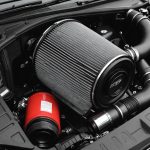Diesel vehicles have gained widespread popularity for their durability, efficiency, and performance. However, maintaining these highly efficient machines requires particular attention, especially concerning their fuel injection systems. A well-maintained fuel injection system ensures optimal engine performance, fuel economy, and longevity. In this article, we will delve into the best practices for checking and maintaining the fuel injection system in diesel vehicles, providing detailed and actionable insights.
Understanding the Fuel Injection System
The fuel injection system is the heart of a diesel engine. This integral component is responsible for injecting fuel into the combustion chamber at the right moment and in the correct quantity. Understanding how this system operates will aid in its effective maintenance.
Additional reading : What guidelines should be followed for safely installing a bull bar on an off-road vehicle?
Diesel engines rely on direct fuel injection, where the fuel is directly injected into the combustion chamber under high pressure. Modern diesel engines use common rail direct injection (CRDI) systems, which ensure precise fuel delivery and improved fuel efficiency. The primary components of the fuel injection system include fuel injectors, fuel pumps, fuel filters, and high-pressure rails.
To ensure your diesel vehicle’s fuel injection system operates at its peak, regular checks and maintenance are crucial. Ignoring these aspects can lead to poor engine performance, increased emissions, and costly repairs.
Have you seen this : What are the safety protocols for handling and disposing of hybrid vehicle batteries?
Regular and Preventive Maintenance
Preventive maintenance plays a pivotal role in the longevity and performance of the fuel injection system. Regular maintenance helps identify potential issues before they escalate into major problems. Key preventive measures include:
-
Fuel Filter Replacement: Diesel fuel often contains impurities that can clog the fuel injectors and other components. Replacing the fuel filter at recommended intervals ensures the injected fuel is clean and contaminant-free. Typically, fuel filters should be replaced every 20,000 to 40,000 miles, but this can vary based on the vehicle model and driving conditions.
-
Using High-Quality Fuel: The quality of diesel fuel directly affects the performance of the fuel injection system. Lower quality fuel can contain water and other contaminants that harm the injectors. It’s advisable to use high-quality, reputable diesel fuel and, if possible, include fuel additives to enhance fuel quality and injector lubrication.
-
Regular Engine Oil Changes: Diesel engines operate under extreme conditions, and the oil lubricates the fuel injector components. Regular oil changes, as per the manufacturer’s recommendations, help maintain the optimal functionality of the injectors and the entire fuel injection system.
-
Monitoring Fuel Pressure: Modern diesel engines come equipped with sensors that monitor fuel pressure. Keeping an eye on these sensors can help detect anomalies. Low or inconsistent fuel pressure can indicate issues within the fuel injection system that require immediate attention.
Diagnosing Common Fuel Injection System Issues
Despite regular maintenance, issues can still arise within the fuel injection system. Early diagnosis is critical to address problems before they lead to severe damage. Here are some common symptoms and their potential causes:
-
Poor Engine Performance: If you notice a decline in engine power, acceleration, or fuel efficiency, it might signal clogged or malfunctioning fuel injectors. Other indicators include rough idling and increased exhaust smoke.
-
Engine Knocking: Unusual knocking sounds from the engine can be a sign of improper fuel injection timing or faulty injectors. This can lead to severe engine damage if not addressed promptly.
-
Hard Starting: Difficulty in starting the engine, especially in cold conditions, can be linked to problems in the fuel injection system. Faulty injectors, air in the fuel system, or low fuel pressure are common culprits.
-
Check Engine Light: Modern diesel vehicles come with onboard diagnostics that illuminate the check engine light when there’s an issue. A scanner tool can read the error codes, providing valuable insights into potential problems with the fuel injection system.
Regular diagnostic checks, using tools like OBD-II scanners, can help identify issues early. It’s also advisable to consult a professional mechanic for a comprehensive assessment if you encounter any of these symptoms.
Fuel Injector Cleaning and Servicing
One of the most critical aspects of maintaining the fuel injection system is ensuring the injectors are clean and functioning correctly. Over time, carbon deposits and other contaminants can clog the injectors, leading to suboptimal performance.
-
Professional Injector Cleaning: Professional cleaning, using ultrasonic or chemical methods, is highly effective. This process involves removing the injectors and cleaning them with specialized equipment to eliminate carbon deposits and other build-ups.
-
Fuel Additives: Regular use of high-quality fuel additives can help keep injectors clean. These additives break down carbon deposits and improve fuel quality, promoting better injector performance. However, it’s essential to use additives recommended by the vehicle manufacturer to avoid potential damage.
-
Injector Testing and Replacement: If cleaning doesn’t resolve performance issues, testing the injectors may be necessary. Professional mechanics use advanced tools to test injector spray patterns and fuel delivery rates. Faulty injectors should be replaced immediately to avoid further damage to the engine.
-
Routine Inspections: Periodic inspections of the injectors and related components, such as seals and O-rings, help identify wear and tear. Replacing worn-out parts timely prevents leaks and maintains optimal fuel pressure.
Importance of Professional Maintenance
While some maintenance tasks can be performed by vehicle owners, many aspects of fuel injection system maintenance require professional expertise. Skilled mechanics have the necessary tools, knowledge, and experience to handle complex issues effectively.
-
Advanced Diagnostic Tools: Professionals use sophisticated diagnostic tools to identify and resolve fuel injection system issues accurately. These tools provide detailed insights that are often beyond the reach of standard OBD-II scanners.
-
Manufacturer-Specific Knowledge: Diesel engines from different manufacturers have unique specifications and maintenance requirements. Professional mechanics are trained to understand these nuances, ensuring precise and effective maintenance.
-
Comprehensive Servicing: Professional maintenance services encompass a thorough inspection and servicing of all fuel injection system components. This includes cleaning, testing, replacing faulty parts, and resetting the system parameters for optimal performance.
-
Warranty and Compliance: Professional servicing ensures compliance with the manufacturer’s warranty requirements. Unauthorized repairs or the use of non-standard parts can void the warranty, leading to expensive out-of-pocket repairs.
Ensuring the optimal performance and longevity of your diesel vehicle relies heavily on the diligent maintenance of its fuel injection system. By adhering to regular maintenance schedules, using high-quality fuel, and seeking professional servicing when needed, you can keep the fuel injection system in peak condition. Understanding the system’s functioning, recognizing symptoms of potential issues, and taking proactive measures are crucial steps in avoiding costly repairs and maintaining engine efficiency.
In conclusion, the best practices for checking and maintaining the fuel injection system in diesel vehicles include preventive maintenance, diagnosing issues early, ensuring regular injector cleaning, and leveraging professional services. By following these guidelines, you can enhance your diesel vehicle’s performance, fuel efficiency, and reliability.











